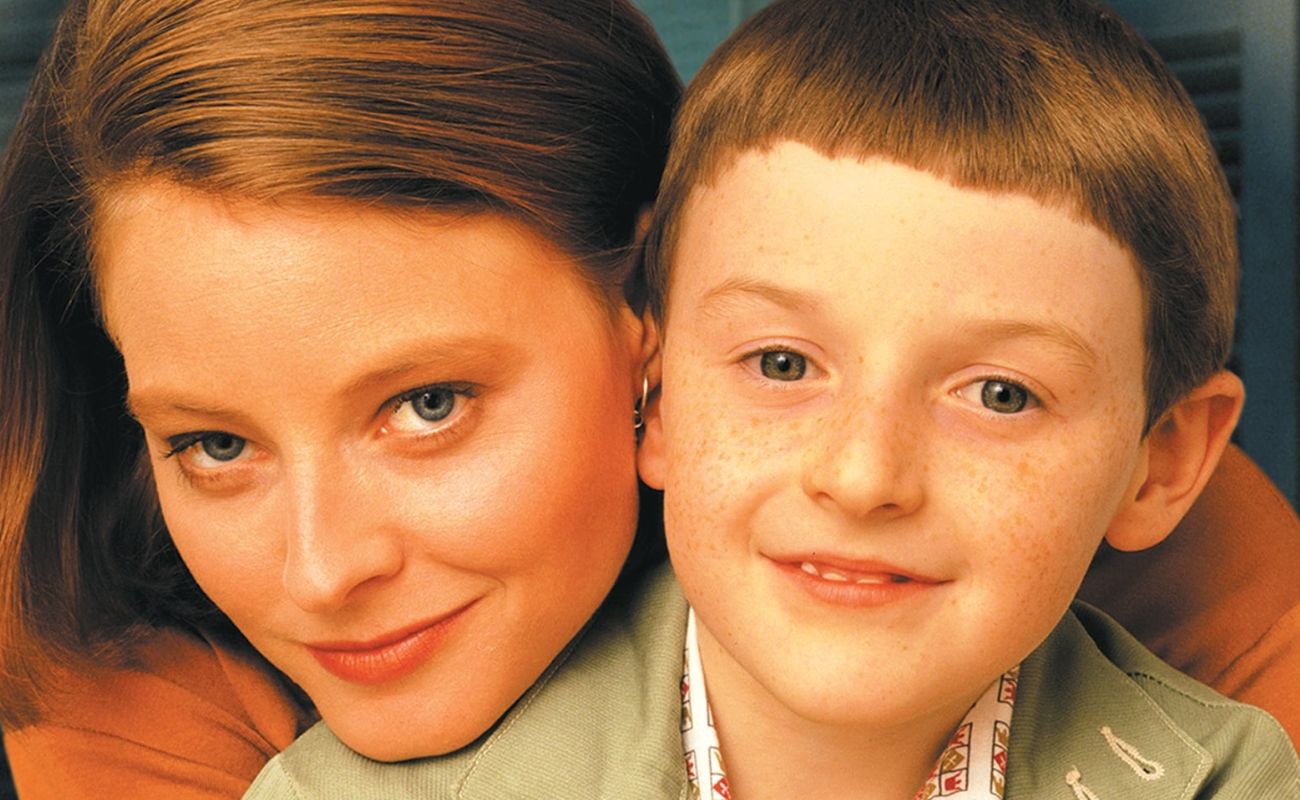
Little Man Tate is a thought-provoking and compelling film that dives into the complex world of child prodigies. Directed by Jodie Foster, who also stars in the movie, Little Man Tate tells the story of Fred Tate, a seven-year-old boy with an exceptional intellect and a talent for mathematics. Released in 1991, this drama explores the challenges faced by both the young prodigy and his mother as they navigate the pressures and expectations that come with his extraordinary abilities. With Foster’s skilled direction and a stellar cast, Little Man Tate offers a poignant and fascinating exploration of the unique experiences and struggles that accompany being gifted at such a young age.
Key Takeaways:
- “Little Man Tate” is a touching film about a gifted child and his devoted mother, exploring the challenges they face with authenticity and emotional depth. It’s a must-watch for anyone interested in the experiences of child prodigies.
- Directed by Jodie Foster, “Little Man Tate” offers a unique perspective on the life of a young genius, celebrating intelligence and challenging stereotypes. It’s a captivating and thought-provoking journey that resonates with audiences even today.
Young Director:
“Little Man Tate” marked the directorial debut of Jodie Foster, who also starred in the film.
Child Prodigy:
The film centers around a gifted seven-year-old child prodigy named Fred Tate (played by Adam Hann-Byrd).
Emotional Drama:
Little Man Tate” is a heartfelt drama that explores the challenges faced by a child genius and his struggling single mother.
Box Office Success:
The movie was a modest success at the box office, earning over $25 million worldwide.
Critical Acclaim:
The film received positive reviews from critics for its touching story and strong performances.
Academy Award Nomination:
Jodie Foster was nominated for an Academy Award for Best Supporting Actress for her role as Fred’s mother.
Jodie Foster’s Connection:
As a child actress herself, Jodie Foster could relate to the experiences of young actors and connected with the story on a personal level.
Unique Perspective:
“Little Man Tate” offers a unique perspective on the challenges faced by intellectually gifted children.
Intense Mother-Son Relationship:
The film delves into the complex dynamic between Fred and his fiercely protective mother, played by Dianne Wiest.
Realistic Portrayal:
The movie takes a realistic approach to portraying the struggles and conflicts faced by child prodigies and their families.
Emotional Rollercoaster:
“Little Man Tate” takes viewers on an emotional journey, exploring themes of identity, self-worth, and parental pressure.
Impressive Score:
The film features a beautiful and moving musical score composed by Mark Isham.
Authentic Performances:
The young actors in the film deliver captivating and authentic performances, adding depth to the story.
Well-Written Script:
The screenplay for “Little Man Tate” was written by Scott Frank, who skillfully captures the emotional nuances of the characters.
Cinematic Exploration:
The film uses visual storytelling techniques to explore the inner world of the young protagonist.
Tackling Social Issues:
“Little Man Tate” touches on the social isolation and alienation experienced by intellectually gifted children.
Supportive Teacher:
Fred finds solace and guidance from an understanding teacher, played by Jodie Foster.
Authenticity:
The movie emphasizes authenticity and avoids sensationalizing the life of a child prodigy.
Beautiful Cinematography:
The film is visually captivating, with stunning cinematography that captures the emotions and struggles of the characters.
Emotional Soundtrack:
The film’s soundtrack enhances the emotional impact of the story, creating a poignant atmosphere.
Thought-Provoking:
“Little Man Tate” raises thought-provoking questions about the balance between nurturing a child’s talents and allowing them to have a normal childhood.
Strong Supporting Cast:
In addition to Jodie Foster and Dianne Wiest, the film boasts a talented supporting cast, including Harry Connick Jr.
Relatable Themes:
Although centered around a child prodigy, the film explores universal themes of identity, acceptance, and personal growth.
Realistic Family Dynamics:
The movie portrays the ups and downs of a single mother raising a gifted child, displaying the complexities of their relationship.
Emotional Depth:
“Little Man Tate” delves into the emotional depths of its characters, allowing viewers to empathize with their struggles.
Inspiration for Gifted Children:
The film serves as an inspiration for gifted children, showcasing their potential and the importance of nurturing their talents.
Parental Sacrifice:
The movie highlights the sacrifices parents make to support their child’s exceptional abilities.
Empathy for the Characters:
The storytelling in “Little Man Tate” encourages empathy and understanding for the characters’ journeys.
Long-Lasting Impact:
Despite its release over two decades ago, “Little Man Tate” continues to resonate with audiences and remains relevant today.
Celebration of Intelligence:
The film celebrates the intelligence and unique perspectives that gifted children bring to the world.
Overcoming Stereotypes:
“Little Man Tate” challenges stereotypes and misconceptions surrounding child prodigies.
Emotional Rollercoaster:
From start to finish, “Little Man Tate” takes viewers on an emotional rollercoaster, leaving a lasting impression.
“Little Man Tate” is a heartfelt and emotionally charged film that explores the challenges faced by a child prodigy and his struggling single mother. Directed by Jodie Foster in her directorial debut, the movie offers a unique perspective on the life of an intellectually gifted child. The story follows the journey of seven-year-old Fred Tate, played by Adam Hann-Byrd, as he navigates the complexities of his exceptional abilities and the pressures of society. His mother, played by Dianne Wiest, fiercely protects and supports him through his journey. The film delves into the intense mother-son relationship, the social isolation experienced by gifted children, and the sacrifices parents make in nurturing their child’s talents. With a well-written script, authentic performances, and stunning visuals, “Little Man Tate” captivates audiences and raises thought-provoking questions about identity, acceptance, and personal growth. It serves as a reminder to celebrate and support the intelligence and unique perspectives that gifted children bring to the world. Whether you’re a fan of emotional dramas or intrigued by the experiences of child prodigies, “Little Man Tate” is a must-watch film that will leave you deeply moved.
Conclusion
Little Man Tate is a captivating film that explores the story of a child prodigy and his struggles to find balance between his intelligence and his desire for a normal childhood. With its thought-provoking narrative, compelling performances, and emotional depth, the movie offers a unique perspective on the challenges faced by gifted children and their families. From the stellar direction by Jodie Foster to the brilliant acting by young actor Adam Hann-Byrd, Little Man Tate is a must-watch for both cinephiles and anyone interested in the human condition.
FAQs
1. Is Little Man Tate based on a true story?
No, Little Man Tate is a fictional film. However, it touches upon the real-life experiences of gifted children and the difficulties they face.
2. Who directed Little Man Tate?
Little Man Tate was directed by Jodie Foster, who also played a supporting role in the film.
3. How old was Adam Hann-Byrd when he starred in Little Man Tate?
Adam Hann-Byrd was only 10 years old when he portrayed the lead character, Fred Tate, in Little Man Tate.
4. Are there any memorable performances in the movie?
Yes, Jodie Foster delivers a standout performance as Dede Tate, Fred’s struggling single mother. She captures the complexities of the character with great depth and nuance.
5. What is the underlying message of Little Man Tate?
The movie explores themes of identity, family dynamics, and society’s treatment of gifted individuals. It emphasizes the importance of nurturing the unique talents of each child while allowing them to have a normal childhood.
6. Did Little Man Tate receive any awards or nominations?
Yes, the film received critical acclaim and was nominated for several awards, including a Golden Globe nomination for Jodie Foster’s performance.
7. Is Little Man Tate appropriate for all age groups?
While the film is generally suitable for all age groups, it may be more relatable and enjoyable for older children, teenagers, and adults due to its complex themes and emotional depth.
Was this page helpful?
Our commitment to delivering trustworthy and engaging content is at the heart of what we do. Each fact on our site is contributed by real users like you, bringing a wealth of diverse insights and information. To ensure the highest standards of accuracy and reliability, our dedicated editors meticulously review each submission. This process guarantees that the facts we share are not only fascinating but also credible. Trust in our commitment to quality and authenticity as you explore and learn with us.


